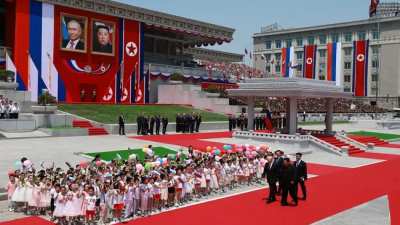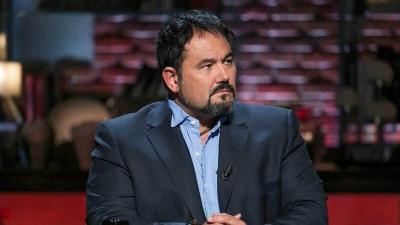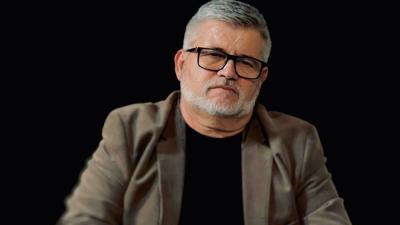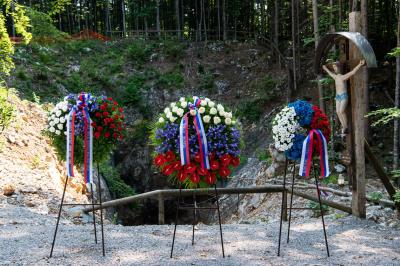In 1984, ‘Red Dawn’ was released, a film directed by John Milius, who two years earlier had directed ‘Conan the Barbarian’, and starring Patrick Swayze and Charlie Sheen. The film sets an alternate history in which the victory of the Greens in West Germany brings about the end of NATO, a Cuban-backed communist revolution in Mexico brings that country into the Soviet orbit, and the United States becomes increasingly isolated. The Warsaw Pact then attacks several American cities and Beijing with atomic weapons and invades American territory. The protagonists of this story are teenagers from Calumet (Colorado) who see their small town occupied by Soviet and Cuban troops and start a guerrilla war against the invader. In the end, thanks to the sacrifice of patriots like the ones depicted in the film, the United States wins World War III.
In 2012, a new version of the film was released, with considerably less success than its predecessor, in which the invasion was not carried out by the Soviet Union and Cuba, but by North Korean troops with the support of Russia and China. Originally, it was to be Chinese troops invading the city of Skopane, Washington, but it was thought that this might negatively affect the box office and the North Koreans were chosen. This fact detracted from the credibility of an already fanciful film; it is one thing to be invaded by the Soviet Union or China, but it is quite another to imagine North Korean troops invading a Western country. However, it seems that reality might outweigh fiction.
On 17 October, Kyrylo Budanov, head of Ukrainian military intelligence, claimed that some 11,000 North Korean troops were in eastern Russia preparing to take part in the war against Ukraine. The news caused disbelief and astonishment, but the first confirmation soon came from South Korea’s National Intelligence Service (NIS), which reported on 18 October that 1,500 North Korean special forces troops were training at Russian military bases in Vladivostok, Ussuriysk, Khabarovsk and Vlagoveshensk (NIS released aerial photos of two of these Russian bases), and that they were likely to be deployed to fight in the war in Ukraine. Subsequently, the NIS raised the number of troops to 3,000, noting that North Korea plans to reach a total of 10,000 troops by December), and were likely to be deployed to fight in the Ukrainian war. South Korean media put the number of troops at 12,000, and the NIS published aerial photos of two of these Russian bases. Yes, Ukraine was right.
Reaction in the West has been, as we have seen in other moments of this war, astonishingly slow. With exceptions such as Lithuanian Foreign Minister Gabrielius Landsbergis, who said that European countries should review French President Emmanuel Macron’s idea of deploying troops to Ukraine, NATO and the United States avoided commenting on the news. Finally, on 23 October, US Secretary of Defense Lloyd J. Austin confirmed the news, calling it a “very, very serious” escalation with consequences in Europe and Asia. The following day, NATO spokeswoman Farah Dakhlallah also confirmed the deployment of North Korean units on Russian territory. Dakhlallah warned that if these troops fight in Ukraine, it would be a “significant escalation”, but did not specify what steps NATO might take in such a case.
In South Korea, on the other hand, the alarm bells are ringing. After a summit meeting in Seoul with Polish President Andrzej Duda, South Korean President Yoon Suk Yeo said that his country would not “stand idly by” in the face of a “North Korean provocation that threatens global security beyond the Korean peninsula and Europe”. To date, South Korea has only provided humanitarian aid to Ukraine, however, Seoul “could be more flexible and revise that policy depending on North Korea’s activities”. That Kim Jong Un’s army could gain combat experience represents an existential threat to South Korea, which, on the other hand, has already been threatened by the Kremlin if it decides to support Ukraine militarily. “It is necessary to think about the consequences for South Korea’s security,” said Russian foreign ministry spokeswoman Maria Zakharova, who warned that “Russia will react harshly to any steps that could pose a threat to the security of the country and its citizens”.
The deployment of North Korean troops is a further step in military cooperation between North Korea and Russia, following the signing of the agreement on mutual support in case of ‘aggression’ last June. For Kim Jong Un, who congratulated Vladimir Putin on his birthday, calling him his “closest comrade”, the relationship with the Kremlin is “invincible and eternal”. According to the NIS, North Korean aid to Russia so far amounts to dozens of ballistic missiles and eight million 122mm and 152mm shells. Of course, North Korea imposes no restrictions on the use of the weapons it delivers to Russia. It is clear that ‘red lines’ and ‘risks of escalation’ exist only for Ukraine, the victim of the greatest aggression in Europe since the Second World War. Meanwhile, the aggressor, Russia, is jumping all the red lines, encouraged by the weakness of the ‘free world’. Unlike much of the Western leadership, Putin does want to win the war.
Few examples illustrate this weakness better than the White House press conference given by John Kirby, retired rear admiral and press secretary of the Department of Defence, in which he claimed that 3,000 North Korean troops were training in Russia and that it was possible they could be sent to fight against Ukraine. One journalist asked him why Zelensky’s request to be able to use long-range missiles against Russian territory had not been given the green light. Kirby’s surprising response was: “We don’t know what these guys are going to do.” Yes, it remains to be seen what the role of the 3,000 or so North Korean troops that may have been deployed to Kursk is, and whether they have gone to fight, dig trenches or record music videos for the beloved leader, but we can only expect the worst-case scenario if the response to Russia and North Korea’s actions are messages of condemnation, doubt and fear. If the West does not respond firmly, the next remake of ‘Red Dawn’ may no longer be a fictional film.
Read also
“The best weapon against propaganda is common sense and intuition”: An interview with Jorge Gómez
Jorge Gómez is a Navy officer in Reserve status and has worked in the field of intelligence during his time at CESID/CNI (National Intelligence Center), from 1992 to 2018, being a specialist in team management, crisis management and Human Sources Intelligence (HUMINT).
Álvaro Peñas
The Battle for History
Despite the European Parliament’s condemnation of communist totalitarianism, “progressive” governments try to erase the memory of its victims.
Álvaro Peñas
Father Góngora: “If we absent ourselves from public spheres, we are negligently conceding ground to the enemy to spread his lies”
The Sacristy of the Vendée is a means to a clear objective: to propose the worldview of the Catholic tradition in times of moral relativism and ethical circumstantialism.














Comments (0)